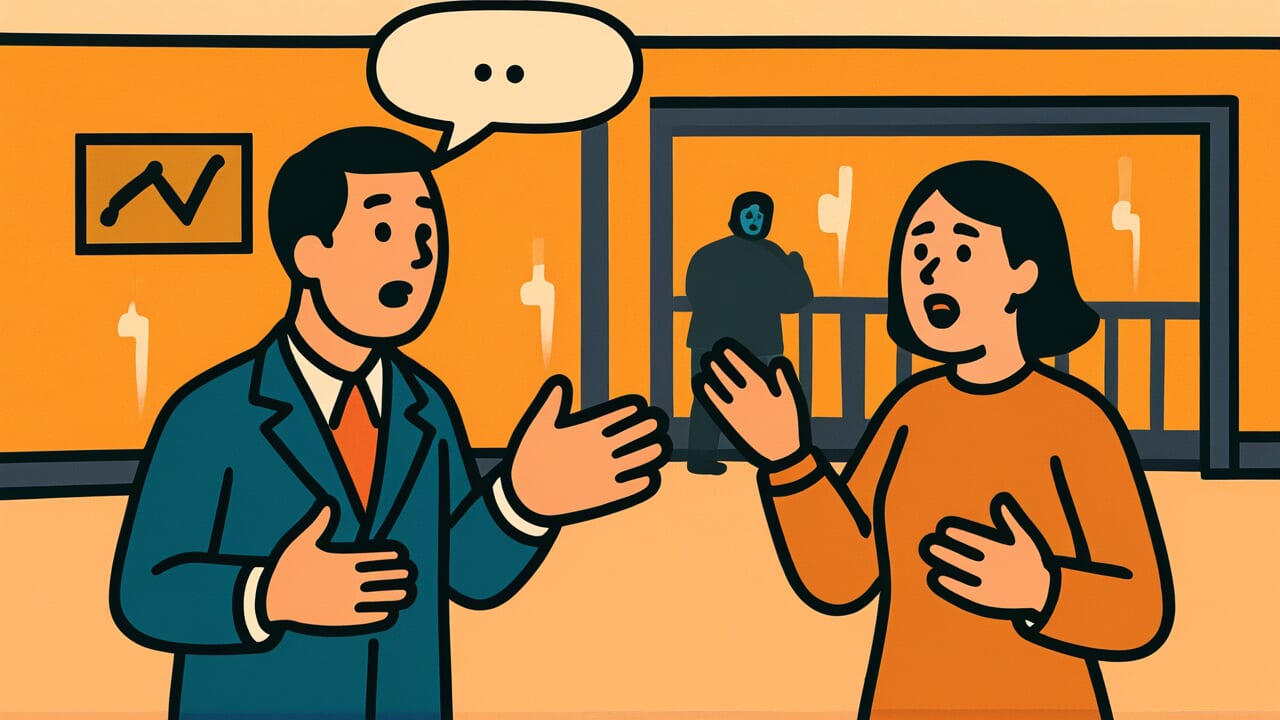How to Read “You can’t have a fight without an opponent”
Aite no nai kenka wa dekinu
Meaning of “You can’t have a fight without an opponent”
“You can’t have a fight without an opponent” means that arguments can’t happen with just one person. Both sides have some reason for the fight.
When a fight happens, we often want to blame only the other person. But this saying shows that we also played a part in causing the problem.
This proverb helps us think calmly after an argument. Instead of thinking “the other person is wrong,” we should look at our own actions too.
This lesson still applies today at work, at home, and with friends. When we realize we also need to improve, we can solve problems better.
Sharing responsibility for fights is important wisdom. It helps us get along better with others.
Origin and Etymology
We don’t know exactly when this proverb first appeared in writing. But the words show deep understanding of how people relate to each other in Japan.
Let’s think about the word “fight.” A fight can’t happen with just one person. You need someone else to argue or clash with.
This proverb states this obvious but often forgotten fact in simple words.
Traditional Japanese society valued harmony and peace. When fights happened, people didn’t blame just one side. They believed both sides had some cause for the problem.
This proverb reflects that Japanese wisdom about solving conflicts.
The proverb uses interesting grammar. It says “without an opponent” to look at fights from a new angle.
This shows that responsibility for a fight isn’t one-sided. This way of expressing ideas uses the delicate nature of Japanese language.
Usage Examples
- After a fight with my spouse, I calmed down and thought about it. You can’t have a fight without an opponent, so I realized I also said too much.
- An employee and manager are in conflict. But you can’t have a fight without an opponent, so we need to listen to both sides carefully.
Universal Wisdom
“You can’t have a fight without an opponent” teaches us that both people share responsibility in relationships. When fights happen, we naturally want to justify ourselves and blame the other person.
But this proverb stops us from thinking that way.
Why has this lesson been passed down through time? Because humans naturally want to protect themselves by not admitting their mistakes.
We try to believe only the other person is wrong. But when we think calmly, we see that both sides are always involved in fights.
We chose to respond to provocation. We chose our words poorly. We chose to avoid talking. These were our own choices.
This proverb teaches us about the structure of fights. Fighting is an interaction between two people. It can’t happen with just one person.
Even if the other person was aggressive, we chose to respond. This realization helps us mature in our relationships.
Our ancestors understood this truth. To end a fight, don’t try to change the other person. First, admit your own part in it.
That is true human wisdom.
When AI Hears This
When we analyze fights mathematically, we see a surprising structure. Game theory defines conflict as a system where “each person’s actions determine each other’s results.”
If one person attacks but the other doesn’t respond, the fight game doesn’t happen. Both people must choose the “conflict strategy” at the same time.
Here’s the paradox. Two enemies are actually cooperating toward a common goal: continuing the fight.
The prisoner’s dilemma explains this well. If both stop attacking, neither gets hurt. But fear that the other might attack makes both keep fighting.
This is called Nash equilibrium. Neither side can change strategy alone.
What’s more interesting is that continuing a fight requires trust that “the other person follows the same rules.” In other words, opponents are enemies but also cooperators in following the rules of conflict.
International conflicts are hard to stop because both sides must change strategy at the same time. Fighting is ironically one of the closest forms of interaction.
Lessons for Today
This proverb teaches you that the key to escaping conflict is in your own hands. Social media arguments, workplace conflicts, family fights—modern life is full of reasons to argue.
When this happens, we think “the other person is wrong.” But stop for a moment.
Could you have improved something too? Your word choice, timing, or attitude. These small things might have made the fight bigger.
You can’t change other people. But you can change how you interact with them.
This realization gives you power. You understand that you have choices to end the fight. Don’t wait for the other person to act first.
Reach out yourself. Admit your own mistakes instead of blaming others. That courage moves stuck situations forward.
In relationships, what matters isn’t winning or losing. It’s building relationships where both people can grow.
This proverb shows you the first step toward that goal.



Comments